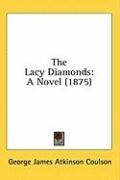harwood a novel

Purchase of this book includes free trial access to www.million-books.com where you can read more than a million books for free. This is an OCR edition with typos. Excerpt from book: CHAPTER III. The First Ordeal. T HAVE read somewhere of a young mother who waited with un- -L speakable anxiety for the verdict of society upon her baby. To her it was the loveliest iufaut that ever wore long clothes. It did not talk or walk, but that mother was entirely satisfied that it could do both if it pleased. She had always rather liked babies, and made fall allowance for any little departures from the path of rectitude of which they were guilty; but the peculiarity in her baby's case was that it made no such departures. When it first said " Goo!"âwhich, by-the-bye, is a very common remark for infants to 'makeâthat mother translated the monosyllable into a long speech in English without the aid of lexicographers. If you had the temerity to suggest a possible error in her rendering of "Goo!" this young mother, if polite, would not pluralize the original and apply it to you in words, but she would do so in her inmost soul. Some such experience was mine a few months ago when I dug " Harwood " out of a mass of fragmentary manuscripts. You see it was my first born. The horrible dread of a public verdictâthe possible bete noir of all embryo authorsâhaunted me and kept the precious infant hidden a dozen years. I cannot tell what brought him to light at last, but am free to confess that I entertained a profound affection for him. I did not read the manuscript! There were one hundred and fifty-six closely written pages! It was written on foreign post paper, very thin and flimsy, and the ink had faded a little. I had selected this paper because I intended to mail the manuscript to Parlours' London Journal, which in fact I did. I do not call that the first ordeal, however, because nobody with a grain of sense could expect a journal that published such trash as Parlours' cont... --This text refers to the Paperback edition.
Info about the book
Author:
Series:
Unknown
ASIN:
B007T0S5E2
Rating:
3.5/5 (4)Your rating:
0/5
Languge:
English
Users who have this book
Users who want this book
What readers are saying
What do you think? Write your own comment on this book!
write a commentif you like harwood a novel try:
Do you want to exchange books? It’s EASY!
Get registered and find other users who want to give their favourite books to good hands!



